On June 19…
“I feel that I must pass such sentence upon the principals in this diabolical conspiracy to destroy a God-fearing nation, which will demonstrate with finality that this nation’s security must remain inviolate; that traffic in military secrets, whether promoted by slavish devotion to a foreign ideology or by a desire for monetary gains must cease.”
~Judge Irving Kaufman
Imposing the death sentence on Julius and Ethel Rosenberg
April 5, 1951
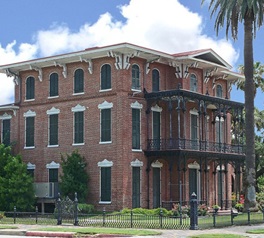
1865 – Thirty months after the Emancipation Proclamation was issued by President Abraham Lincoln, slaves in Galveston, Texas were finally informed of their freedom.
The news of General Robert E. Lee’s surrender on April 9 moved slowly, and didn’t reach Texas until May 1865. The Army of the Trans-Mississippi did not surrender until June 2. On June 19, Union Army General Gordon Granger, standing on the balcony of Galveston’s Ashton Villa (shown above), read aloud the contents of General Order No. 3, announcing the total emancipation of those held as slaves:
“The people of Texas are informed that, in accordance with a proclamation from the Executive of the United States, all slaves are free. This involves an absolute equality of personal rights and rights of property between former masters and slaves, and the connection heretofore existing between them becomes that between employer and hired labor.”
The anniversary is still officially celebrated in Texas and 41 other contiguous states as Juneteenth.
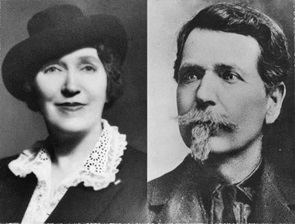
1910 – The first Father’s Day celebration was held in Spokane, Washington, thanks to 26-year old Sonora Smart Dodd. Her father, civil war veteran William Jackson Smart, was a widower who had raised six children. After hearing a church sermon about the newly recognized Mother’s Day, Sonora – Smart’s eldest child and only daughter – told her pastor that fathers should have a similar holiday to honor them.
Several local clergymen accepted the idea, and on this date – the very first Father’s Day – “sermons honoring fathers were presented throughout the city”. A bill to give national recognition to the holiday was first introduced in Congress in 1913, but it was met with resistance.
In fact, it took more than five decades for Father’s Day to become a national holiday when Congress finally passed – and President Richard Nixon signed in 1972 – a bill that made the holiday permanent.
On behalf of fathers everywhere, thank you, Sonora.
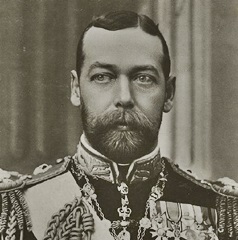
1917 – In the third year of World War I, strong anti-German feeling within Britain caused sensitivity among the royal family about its German roots. Britain’s King George V ordered the British royal family to dispense with the use of German titles and surnames, changing the surname of his own family, the decidedly Germanic Saxe-Coburg-Gotha, to Windsor.
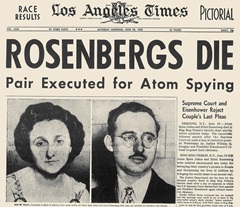
1953 – Julius and Ethel Rosenberg, convicted of conspiring to pass U.S. atomic secrets to the Soviets, were executed in the electric chair at Sing Sing Prison in Ossining, New York. Both refused to admit any wrongdoing and proclaimed their innocence until the end. They were the first U.S. citizens to be convicted and executed for espionage during peacetime and their case remains controversial to this day.
Julius was arrested in July 1950, and Ethel in August of that same year, on the charge of conspiracy to commit espionage. Specifically, they were accused of heading a spy ring that passed top-secret information concerning the atomic bomb to the Soviet Union.
Some people believed that the Rosenbergs were the victims of a surge of hysterical anti-communist feeling in the United States, and protested that the death sentence handed down was cruel and unusual punishment. Many Americans, however, believed that the couple had been dealt with justly.
They agreed with President Dwight Eisenhower when he issued a statement declining to invoke executive clemency for the pair. He stated, “I can only say that, by immeasurably increasing the chances of atomic war, the Rosenbergs may have condemned to death tens of millions of innocent people all over the world.”
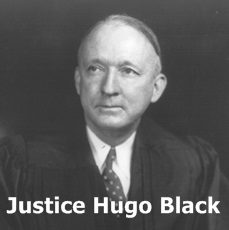
1961 – The U.S. Supreme Court struck down a provision in Maryland’s constitution requiring state officeholders to profess a belief in God.
In 1960, the Governor of Maryland appointed Roy Torcaso as a notary public. At the time, the Constitution of Maryland required “a declaration of belief in the existence of God” in order for a person to hold “any office of profit or trust in this State.”
Torcaso, an atheist, refused to make such a statement, and his appointment was consequently revoked. Believing his constitutional rights to freedom of religious expression had been infringed, Torcaso filed suit in a Maryland Circuit Court, only to be rebuffed. The Circuit Court rejected his claim, as did the Maryland Court of Appeals.
Torcaso took the matter to the U.S. Supreme Court, which, in a decision delivered by Justice Hugo Black, ruled, “a person is not compelled to hold public office cannot possibly be an excuse for barring him from office by state-imposed criteria forbidden by the Constitution. Neither a State nor the Federal Government can constitutionally force a person to profess a belief or disbelief in any religion.”
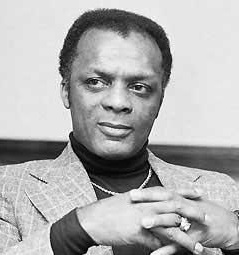
1972 – The U.S. Supreme Court ruled against Curt Flood in Flood v. Kuhn, denying Flood free agency as a baseball player. Flood was trying to break the reserve clause that had tied baseball players to one franchise since the establishment of professional baseball. He refused to accept a trade from the St. Louis Cardinals (where he was a 3-time All Star) to the Philadelphia Phillies following the 1969 season.
He initially appealed to baseball commissioner Bowie Kuhn, stating in a letter, “After twelve years in the major leagues, I do not feel I am a piece of property to be bought and sold irrespective of my wishes. I believe that any system which produces that result violates my basic rights as a citizen and is inconsistent with the laws of the United States.”
Kuhn denied Flood’s request for free agency, prompting a $1 million lawsuit by Flood against Kuhn and Major League Baseball, alleging violation of federal antitrust laws. No active players testified on his behalf, nor did any attend the trial. Although players’ union representatives had voted unanimously to support Flood, rank-and-file players were strongly divided, with many avid supporters of the management position.
The Supreme Court decision, delivered by Justice Harry Blackmun, affirmed the 1922 Federal Baseball Club v. National League opinion of Oliver Wendell Holmes that baseball was a sport and not a business, and therefore exempt from antitrust law.
The blistering dissent by Justices Thurgood Marshall, William Brennan and William O. Douglas maintained that the ruling was incorrect because baseball was and is a business, and a big business, packaged with liquor sales, broadcasting and many other industries.

1978 – Garfield, holder of the Guinness World Record for the world’s most widely syndicated comic strip, made its debut.

1986 – Two days after being drafted by the Boston Celtics (with the second pick in the NBA draft), Maryland basketball star Len Bias died from cardiac arrhythmia induced by a cocaine overdose. He was 22.
After returning home to the Maryland campus from Boston, Bias, along with longtime friend Brian Tribble and several teammates, repeatedly snorted cocaine (for four hours) overnight in the dormitory suite shared by Bias and his teammates.
At 6:30 a.m., Bias had a seizure and collapsed. Prince George’s County emergency services rushed to the scene but attempts to restart his heart and breathing were unsuccessful.
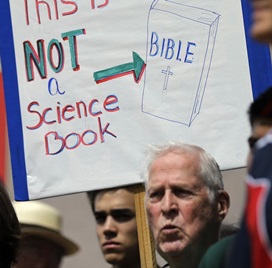
1987 – The U.S. Supreme Court, by a 7-2 margin, struck down a Louisiana law requiring any public school teaching the theory of evolution to also teach creation science.
The Court ruled that this law violated the Establishment Clause of the First Amendment because the law was specifically intended to advance a particular religion. It also held that “teaching a variety of scientific theories about the origins of humankind to school children might be validly done with the clear secular intent of enhancing the effectiveness of science instruction.”
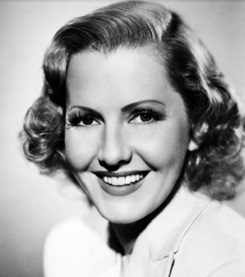
1991 – Actress Jean Arthur, best known for her role as Clarissa Saunders in Mr. Smith Goes To Washington, died of heart failure at the age of 90.
In addition to Mr. Smith, Arthur had feature roles in two other Frank Capra films: Mr. Deeds Goes To Town and You Can’t Take It With You. She was nominated for an Academy Award for Best Actress in 1944 for her performance in The More the Merrier.

2000 – The U.S. Supreme Court, in a 6-3 ruling, barred officials from letting students lead stadium crowds in prayer before football games.
The Santa Fe Independent School District had a policy in which the students would first vote by secret ballot whether to have a benediction at graduation. The students voted in favor of school prayer, and two students delivered nonsectarian benedictions at the graduation ceremony.
Following the ceremony, the school removed the requirement that the prayer be nonsectarian, with no proselytizing. A similar policy was adopted for football games. Two sets of students and their mothers – one Mormon, the other Catholic – had filed suit against the school district, claiming prayer at school events to be found unconstitutional altogether.
The majority opinion, written by Justice John Paul Stevens, held that pre-game prayers delivered “on school property, at school-sponsored events, over the school’s public address system, by a speaker representing the student body, under the supervision of school faculty, and pursuant to a school policy that explicitly and implicitly encourages public prayer” were not private, but public speech. “Regardless of the listener’s support for, or objection to, the message, an objective Santa Fe High School student will unquestionably perceive the inevitable pregame prayer as stamped with her school’s seal of approval.”

2013 – Actor James Gandolfini, best known for his role as New Jersey crime boss Tony Soprano on the TV series The Sopranos, died of a heart attack. He was 51.
Gandolfini’s early career consisted primarily of tough guy roles in films such as True Romance, Terminal Velocity, Get Shorty, and The Juror but it was his role as Soprano that won him a Primetime Emmy Award for Outstanding Lead Actor in a Drama Series three times and made him a household name.
He remained humble about his success, saying, “‘The Sopranos’ all came down to the writing. Good writing will bring you to places you don’t even expect sometimes. I’ve been very lucky, considering what I look like.”
Compiled by Ray Lemire ©2018 RayLemire.com. / Streamingoldies.com. All Rights Reserved.